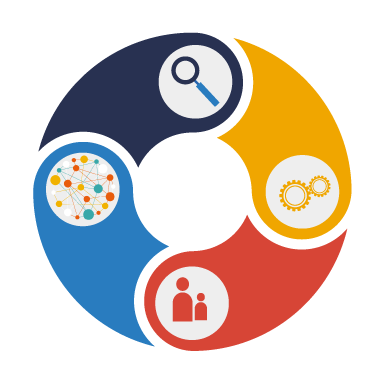RareBoost Seminar – Disposable Sensors for Next-Generation Diagnostics of Rare Diseases – Dr. Can Dinçer
We invite you to the Rareboost Seminar under the theme of ‘Advanced Technologies in Rare Disease. Assoc. Prof. Can Dinçer from the Technical University of Munich (TUM) will discuss ‘Disposable Sensors for Next-Generation Diagnostics of Rare Diseases’. Please follow the link or scan the QR Code to register for the webinar.
Date: 20 January 2025, Monday
Time: 2:00 PM
Location: Online Talk- Zoom

About Dr. Can Dinçer
Dr. Dinçer has been an Associate Professor of Sensors and Wearables for Healthcare at the Technical University of Munich (TUM) since October 2024. The research interest of his group is the development of bioanalytical materials, sensors and microsystems, as well as their combination with data science and artificial intelligence for One-Health: human and animal health, and the shared environment. Their focus is on disposable sensing devices for point-of-need testing and wearable applications.
Having completed his studies in microsystems engineering, He graduated from the Technical Faculty of the University of Freiburg, Germany and received his PhD degree with summa cum laude in 2016. Between June 2017 – June 2019, He worked as a visiting researcher at the Department of Bioengineering at the Imperial College London, UK. Since September 2019, He is an Associate Editor of the journal “Biosensors and Bioelectronics” (Elsevier). He also is editorial board member of the journals “Advanced Sensor Research” (Wiley) and “The Innovation Materials” (Cell Press). Up to date, He has received different awards and prizes for his research and contribution to the field of biosensors and analytical chemistry. He is a member of the German Society for Biomedical Engineering (VDE|DGBMT), American Chemical Society, International Society of Electrochemistry (ISE) and the Society for Electroanalytical Chemistry (SEAC).
Seminar Abstract
Disposable sensors are low-cost and easy-to-handle sensing devices for short-term or single-shot measurements. Over the last decade, they have become increasingly important for different applications, including from environmental, forensic, pharmaceutical, agricultural, and food monitoring to diagnostics, especially the point-of-care testing and wearables. In this talk, first a short introduction to disposable sensors will be given. Afterwards, a broad spectrum of different biosensing approaches for next-generation on-site testing will be presented: (i) Multiplexed on-site therapeutic drug monitoring of antibiotics from invasive and non-invasive samples toward personalized antibiotherapy, (ii) CRISPR-powered electrochemical biosensors for nucleic-acid-amplification-free, simultaneous and on-site detection of multiple RNAs and other biomolecules for COVID-19 management, (iii) wearable microfluidic immunosensing devices for lab-on-a-bird applications and beyond, (iv) low-cost electrochemical paper-based wearable sensors that can be integrated to any type of facemask for wearable and continuous monitoring of breath biochemistry and/or testing of the infectious diseases such as coronaviruses from exhaled breath, and (v) light-controlled dynamic bioassays using optogenetic switches (OptoAssays) for wash- and pump-free point-of-care diagnostics.

